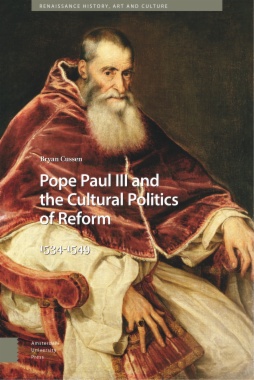When Paul III was elected in 1534, hopes arose across Christendom that this pope would at last reform and reunite the Church. During his fifteen-year reign, though, Paul's engagement with reform was complex and contentious. A work of cultural history, this book explores how cultural narratives of honour and tradition, including how honour played out in politics, significantly constrained Pope Paul and his chosen reformers in framing strategies for change. Indeed, the reformers' programme would have undermined the culture of honour and weakened Rome's capacity to ward off current threats of invasion. The study makes a provocative case that Paul called the Council of Trent to contain reform rather than promote it. Nevertheless, Paul and the Council did sow seeds of reform that eventually became central to the Counter-Reformation. This book thus sheds new light on a pope whose relationship to reform has long been regarded as an enigma.
- Cover
- Table of Contents
- Acknowledgements
- List of Abbreviations
- Note on Transcriptions
- Note on Money
- Introduction
- 1. Humanism and Honour in the Making of Alessandro Farnese
- 2. Pathways to Honour
- 3. Tradition and Reform
- 4. The Consilium and Reform Constrained
- 5. Pax et Concordia – Politics and Reform
- 6. The Ottoman Threat
- 7. The Council of Trent
- 8. Reform in the Twilight Years
- About the Author
- Index

